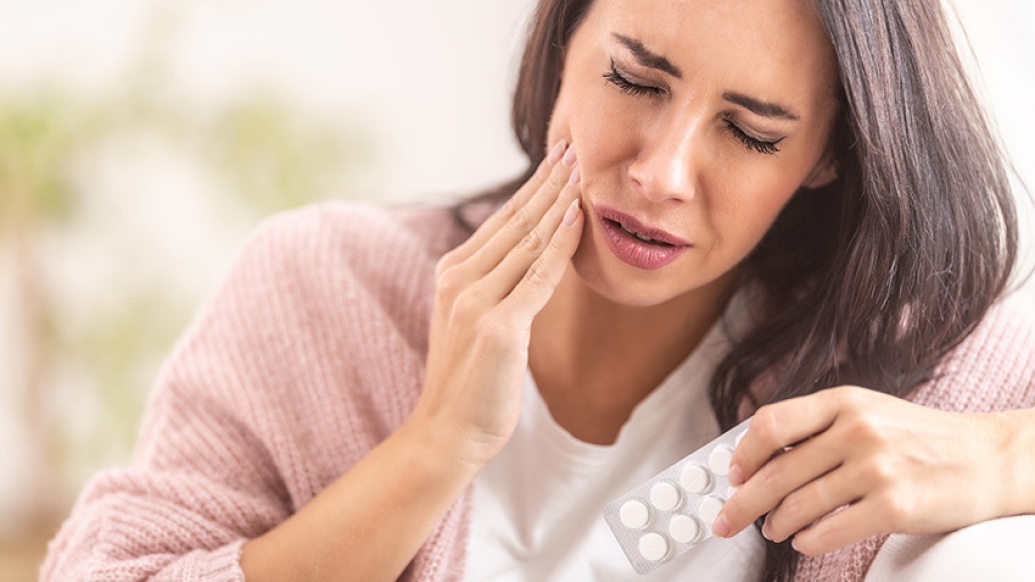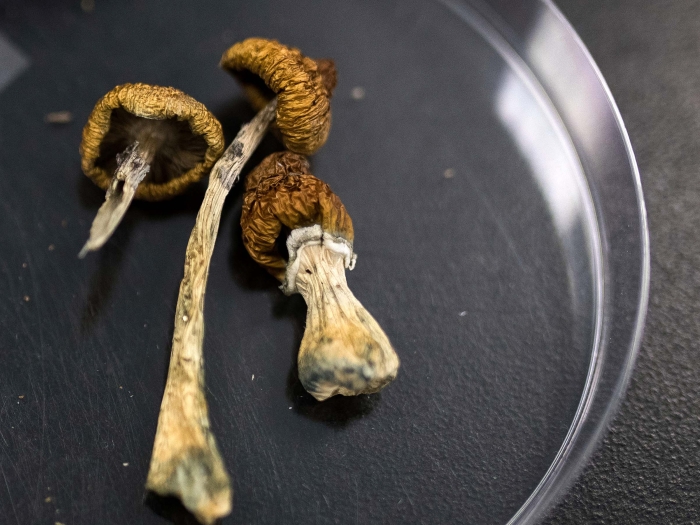Study also shows certain patients have an even greater risk of overdose if they fill opioid prescriptions, and strengthens argument against use of opioids for most dental pain.
9:39 PM
Author |

When they go to the dentist to get a tooth pulled or another procedure, patients might not think that the prescription they receive to ease their pain could put them or their family at risk of an opioid overdose.
But a new study from the University of Michigan shows that overdose rates were two and a half times higher among patients who filled a prescription for an opioid medication after a dental procedure, compared with those who didn't fill such a prescription.
Overdose rates were also higher among the family members of such patients – possibly from misuse of the leftover pills.
The study is published in the American Journal of Preventive Medicine by a team from the U-M Medical School and School of Dentistry. It used data from 8.5 million dental procedures in teen and adult patients between 2011 and 2018 whose care was covered by Medicaid or private dental insurance. Nearly 27% of these patients filled a prescription for an opioid such as hydrocodone or oxycodone.
SEE ALSO: Pain Doesn't Take a Holiday: Dental Opioids Study Points to Need for Better Prescribing
The researchers identified 2,700 overdoses that occurred in the 90 days after a tooth extraction or 119 other dental procedures. That works out to about three overdoses for every 10,000 dental procedures. The rate was 5.8 per 10,000 among those who filled an opioid prescription within three days of their procedure, compared with 2.2 per 10,000 among those who didn't.
The researchers note that other data have shown that in 2016 alone, dentists wrote 11.4 million prescriptions for opioids. The new study's findings suggest that 1,700 overdoses a year could be happening because of dental opioid prescriptions.
Risks among family members
The study also used data from 3.5 million privately insured dental procedure patients to examine overdoses within 90 days in the patients' family members. The rate of overdose was 1.7 per 10,000 procedures in family members of privately insured patients who filled opioid prescriptions, compared with 1 per 10,000 procedures among those who didn't.
In the study, 400 family members of patients were treated for opioid overdoses in the 90-day period after the dental patient's procedure. In all, 42% of these overdoses were in the child of the patient who had a procedure, and another 25% were in a spouse; the rest were in parents and siblings.
Kao-Ping Chua, M.D., Ph.D., led the analysis.
"Our paper shows that when patients fill dental opioid prescriptions, the risk of opioid overdose increases both for themselves and their family members," he says. "This underscores the importance of avoiding dental opioid prescribing when non-opioids like ibuprofen and acetaminophen are effective options for pain control, as is the case for the majority of dental procedures. Our finding of increased overdose risk in family members also shows the importance of emphasizing safe storage and disposal when prescribing opioids to dental patients."
Chua is a pediatrician at Michigan Medicine, a health care researcher at the Susan B. Meister Child Health Evaluation Research Center, and a member of the U-M Institute for Healthcare Policy and Innovation.
This [study] underscores the importance of avoiding dental opioid prescribing when non-opioids like ibuprofen and acetaminophen are effective options for pain control.Kao-Ping Chua, M.D., Ph.D.
"To me, this is one of the most powerful truths we've unlocked in our 'big data' research on dental opioid prescribing," says senior author Romesh Nalliah, D.D.S., M.H.C.M. "That when a dentist, like me, prescribes an opioid to a patient I am putting their entire family at risk of overdose. Dentists should consider, if the family concerned was yours, would you take that risk?" Nalliah is associate dean for patient services at U-M School of Dentistry and a member of IHPI, and has led other research on dental opioid use.
The authors are part of the Michigan Opioid Prescribing Engagement Network (Michigan OPEN), which has developed guidelines for dentists and surgeons to reduce or eliminate the prescribing of opioids for many procedures and operations, while still providing effective pain relief. Michigan OPEN recommends that dentists avoid prescribing opioids for most dental procedures because non-opioids are just as effective for pain.
MORE FROM THE LAB: Subscribe to our weekly newsletter
Groups at higher risk of overdose after receiving dental opioids
The study also identifies specific groups of dental patients who are at a higher risk of opioid overdose after receiving opioid prescriptions.
Those groups include patients with diagnosed mental health conditions and substance use disorders, and those with Medicaid health coverage.
SEE ALSO: Medicaid Expansion Made Mouths Healthier, Study Finds
This knowledge could help dentists and oral surgeons choose the pain treatment for their patients more carefully, and include a prescription for the overdose treatment naloxone if they prescribe opioids to someone with a higher risk of overdose.
The study was funded by the Benter Foundation, the Substance Abuse and Mental Health Services Administration, U-M Precision Health, and the National Institute on Drug Abuse (DA048110). In addition to Chua and Nalliah, the study's authors are Brooke Kenney, M.P.H., and Michigan-OPEN co-directors Jennifer F. Waljee, M.D., M.S., and Chad M. Brummett, M.D., who are also members of IHPI.
Paper cited/DOI: "Dental Opioid Prescriptions and Overdose Risk in Patients and Their Families," American Journal of Preventive Medicine. DOI: 10.1016/j.amepre.2021.02.008
Like Podcasts? Add the Michigan Medicine News Break on iTunes, Google Podcast or anywhere you listen to podcasts.

Explore a variety of health care news & stories by visiting the Health Lab home page for more articles.

Department of Communication at Michigan Medicine
Want top health & research news weekly? Sign up for Health Lab’s newsletters today!





